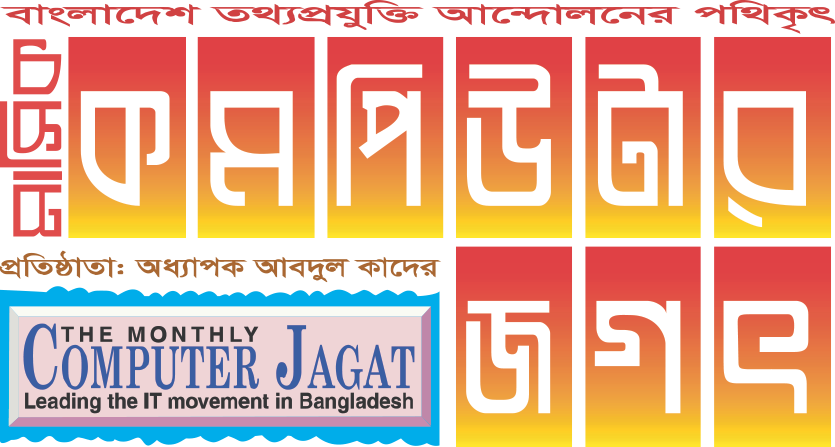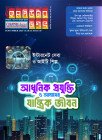হোম > Bangladesh Delegation Returns from WCID 2009 With Valuable Experience
লেখক পরিচিতি
লেখকের নাম:
অধ্যাপক ড. এম. আব্দুস সুবহান
মোট লেখা:১
লেখা সম্পর্কিত
পাবলিশ:
২০০৯ - অক্টোবর
তথ্যসূত্র:
কমপিউটার জগৎ
লেখার ধরণ:
ডব্লিউসিআইডি
তথ্যসূত্র:
ইংরেজি সেকশন
ভাষা:
বাংলা
স্বত্ত্ব:
কমপিউটার জগৎ
Bangladesh Delegation Returns from WCID 2009 With Valuable Experience
World Congress on ICT for Development-2009 (WCID-2009) was held on 10-12 September 2009 in Beijing, China. A 10-member Bangladesh delegation participated in WCID-09, led by Engineer Hasanul Haq Inu MP, while Dr Akram Hossain Chowdhury MP was the Deputy Leader of the delegation. There were 20 technical papers in the WCID-09 from Bangladesh including a keynote paper presented in the second Plenary session. Out of 70 papers in the WCID-09, 20 were from the Bangladeshi participants. Others Delegation members Professor Dr. M Abdus Sobhan, Professor Dr. M Lutfar Rahman, AHM. Bazlur Rahman, M. A. Haque Anu, Md. Saifuddin Khalid, Vashkar Bhattacharjee and Afrina Tanzin.

Bangladesh Delegation at WCID 2009
Benefits of Attending the WCID-09
All the members of the Bangladesh delegation learnt a lot about the achievements in the ICT arena of different countries from the two plenary sessions and different technical sessions on different thematic areas. The knowledge and experience gained from the Congress can be effectively used to organize the BDNCID-2010 in a better form.
Recommendations from the Congress Venue
Bangladesh organized the PrepCom to WCID-09 on 2 May, 2009 to take preparation for an effective participation in the Congress. The Bangladesh delegation distributed the booklet of the PrepCom containing the messages and abstracts of the papers accepted for presentation among the participants in the Congress. They were so impressed to see the political declaration and commitment of Prime Minister Sheikh Hasina for building up digital Bangladesh by 2021 on its 50th year of independence. This commitment was highly praised in the Congress. The delegation placed a set of recommendations in the congress.

Declaration of the WCID-2009
A number of issues of significance related to the theme were addressed in the Congress and the participants have reached the following understandings and agreements.

Millennium Development Goal:
for remedying the Unbalancing Boat People, from every corner of the globe has same rights for seeking the happier life. We are in fact in a big village and sailing on the same boat. Due to historical reasons, however, people have been in different positions, richer or poorer, stronger or weaker, well-educated or less-enlightened. Over-unbalance may lead to danger to the mankind. To remedy the situation, the United Nations have set a Millennium Development Goal to at least halve the poor population before 2015. This is a loyal responsibility for all of us.
Information Age:
New Stage of Human Society Science and Technology as a whole is the major driving force for the development of human society. Material Science and Technology has made it possible for human society to advance from nomadic age to agricultural age, Energy Science and
Technology has driven the society from agricultural age to industrial age, and now Information Science and Technology is leading the society from industrial age to information age.
ICT:
Effective Tool for Development in the New Age Advancement of the human society depends on the new tools innovated by science and technology. The typical new tool in information age is the information and communication technology, ICT, which has two stages to develop: the primary stage and the advanced stage. The Primary ICT Tool supports the convenience of information sharing among people that will make better matches among sectors of the society and thus improves the social productivities. The Advanced ICT Tool will support highest efficiency and creativity in social productivities and provide equal opportunity for people to use; leading the various kinds of gaps existed in society gradually diminished.
Education:
Key to the Use of ICT Tool to effectively use ICT Tool for making progress in economic and social development, people need to acquire necessary kinds of knowledge and skills. Education will thus play the most fundamental and indispensable role. People in information age have the advantage of using ICT for receiving education. This has been proved by many appreciable cases presented during WCID’09.
Responsibility for Governments and Citizens:
Government in any country should take on the responsibility to promote the national education for all people and place education as the top priority on the national development agenda. Government should also take effective measures to encourage all stakeholders for building up and maintaining the national infrastructure as well as creating the variety of information resources so that people, including disabled people, can afford to use ICT Tool for learning, working and living. Citizens should well be aware of the importance of learning and people are never too old to learn ICT.
Responsibility for International Organizations:
To reduce the unbalance of development among nations, international cooperation between developed and developing countries should be strengthened. Developed countries have responsibility to provide assistance to the developing countries in this regards. The international organizations have obligations to work together for promoting various kinds of cooperation among nations. Conference, e.g. WCID’09, is one of the approaches for this purpose.
Public Call:
The participants of WCID’09 strongly appeal to all citizens, professions, governments and international bodies to take effective actions in promoting ICT for sustainable human, economic and social development.
CJ WEB
Feedback sobhan30@gmail.com
লেখাটি পিডিএফ ফর্মেটে ডাউনলোড করুন
লেখাটির সহায়ক ভিডিও
পাঠকের মন্তব্য
অনুরূপ লেখা



